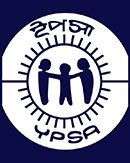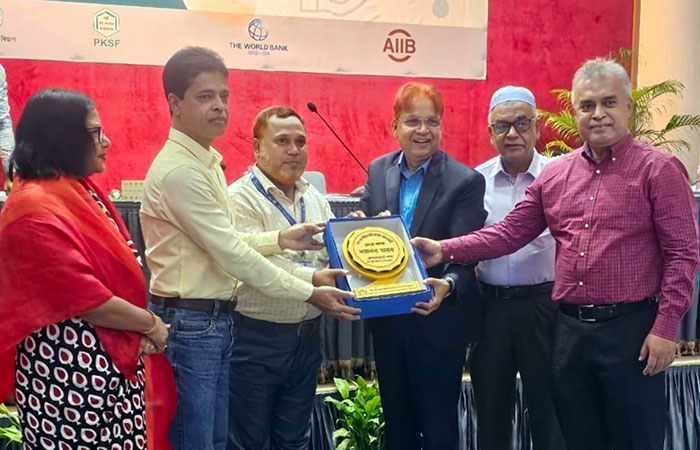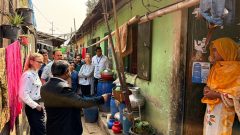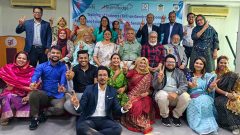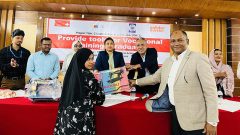Bangladesh has made significant strides in eliminating open defecation. However, access to hygienic and safe sanitation facilities remains a challenge. To address this, the government launched a special project titled “Rural Water Sanitation and Hygiene for Human Capital Development ” in 2021, aligned with Sustainable Development Goal 6 (clean water and sanitation).
Palli Karma-Sahayak Foundation (PKSF) oversees the project’s implementation. As of July 4, 2024, a remarkable 237,000 two-pit latrines with safe management systems have been built across 30 districts. Additionally, 60,000 households have benefitted from safe water supply installations.
This achievement was highlighted during PKSF’s third annual project coordination meeting held at the PKSF Bhaban, Dhaka, on July 4, 2024.
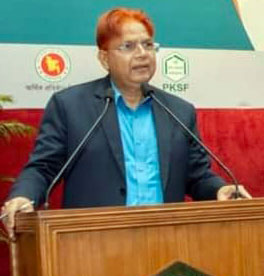 Dr. Md. Jasim Uddin, PKSF’s Additional Managing Director, addressed the gathering. He elaborated that the five-year project is funded jointly by the World Bank and the Asian Infrastructure Investment Bank. It’s being executed through PKSF’s 87 partner organizations across 182 upazilas in eight divisions of Bangladesh.
Dr. Md. Jasim Uddin, PKSF’s Additional Managing Director, addressed the gathering. He elaborated that the five-year project is funded jointly by the World Bank and the Asian Infrastructure Investment Bank. It’s being executed through PKSF’s 87 partner organizations across 182 upazilas in eight divisions of Bangladesh.
Other speakers at the meeting included World Bank’s Senior Water and Sanitation Specialist, Rokeya Ahmed, and PKSF’s General Manager and Project Coordinator, Md. Abdul Matin.
A key highlight of the event was the recognition of outstanding performance. Twenty branches from 11 partner organizations received special honors for exceeding project targets. Notably, six of these high-performing branches belonged to YPSA. These YPSA branches were specifically recognized for their excellence:
- Daganbhuiyan Branch
- Chhagalnaiya Branch
- Mirsarai Branch
- Shantirhat Branch
- Mogolerhat Branch
- Shahrasti Branch
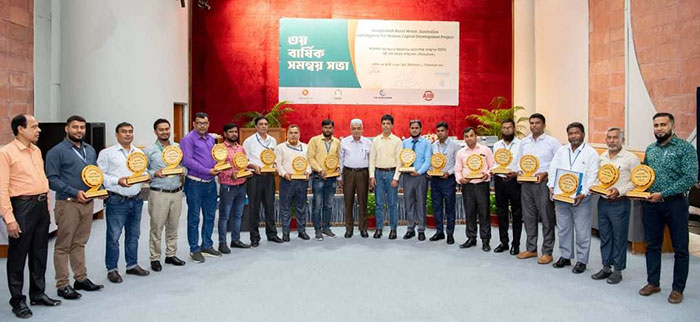
Representatives from YPSA, including the managers of the awarded branches, Director (Economic Development) Mr. Manzur Morshed Chowdhury, and Founder and Chief Executive Mr. Md. Arifur Rahman, received the honor plaques and certificates on behalf of the winning teams.
This recognition underscores YPSA’s commitment to improving sanitation in rural Bangladesh and serves as an inspiration for others involved in the project.
